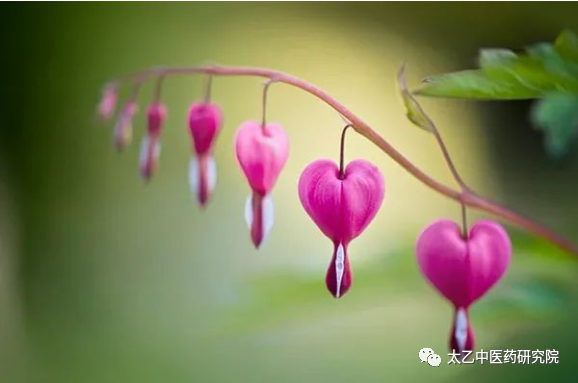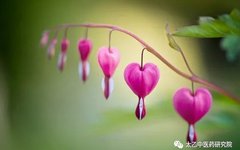
Zhang Zhongjing was not only a great clinical physician but also a health preservation expert deeply influenced by the principles of the Neijing. Under the theoretical guidance of preserving yuanqi (original qi) and preventing diseases, he utilized methods such as herbal therapy, dietary therapy, physical therapy, and acupuncture to strengthen the body and expel pathogens, promoting recovery and playing an important guiding role in the development of TCM health preservation.Preventing Minor Issues and Treating Diseases EarlyIn the preface of the Shanghan Lun, Zhang Zhongjing criticized those who neglect body care, stating that they are “adorned on the outside but neglect the essence, beautifying the exterior while withering the interior. If the skin does not exist, where will the hair attach?” Regarding health preservation, he emphasized the importance of “treating diseases before they occur.” He stated in the opening line of the Jinkui Yaolue, “The superior physician treats diseases before they occur; why is this?” He then used the example of “seeing liver disease and knowing it transmits to the spleen, one should first strengthen the spleen” to elaborate on methods of disease prevention.1. Humans Live in Nature and are Governed by It.Whether humans actively adapt to the changes of nature or passively accept its constraints leads to vastly different outcomes. Zhang Zhongjing believed that human agency should dominate. He vividly stated, “Humans are endowed with the five constants, growing and thriving according to the climate; although the climate can nurture all things, it can also harm them, just as water can float a boat or capsize it.” How can one navigate freely like a light boat on water? He said, “If the five organs’ yuan zhen (original essence) are unobstructed, one will be peaceful and harmonious.” This aligns with the principle stated in the Neijing, “When the righteous qi is preserved within, evil cannot invade.”2. The Key to Maintaining Physical and Mental Health or Preventing Disease Deterioration Lies in “Nurturing Caution.”“Nurturing caution” refers to internally nurturing righteous qi and externally warding off pathogenic factors. He stated, “If one can nurture caution, not allowing evil winds to disturb the meridians, and treating them before they affect the organs; when the limbs feel heavy and stagnant, one should practice dao yin (guiding and stretching exercises), breathing techniques, acupuncture, and massage, ensuring the nine orifices remain unblocked; one should also avoid violating the laws of nature, causing harm from beasts, and ensure the living environment is not depleted, moderating the intake of hot and cold foods, bitter, sour, spicy, and sweet, so that the body does not weaken, as illness will have no way to enter the pores.” This passage reflects Zhang Zhongjing’s health preservation philosophy that emphasizes prevention over treatment. The terms “not allowing,” “treating before it affects,” and “feeling heavy… then practicing” all contain the proactive significance of early prevention and treatment.3. It is Worth Noting that Zhang Zhongjing Places “Dao Yin and Breathing Techniques” at the Forefront, and This is Not Accidental.Dao yin is a medical exercise method characterized by bodily movements, self-massage, and stretching of limbs. Breathing techniques, as stated in the Zhuangzi, refer to “expelling the old and taking in the new,” which is essentially a method of adjusting breathing for health preservation and disease prevention, similar to modern qigong. “Dao yin and breathing techniques” serve as exercises for disease prevention and anti-aging, being simple and effective, thus widely accepted. From a modern medical perspective, these exercises primarily stimulate peripheral nerves, promote blood and lymph circulation, and enhance metabolic processes in tissues, improving nutrient absorption and strengthening muscle fiber activity, ultimately leading to gradual improvement in overall function.Additionally, Zhang Zhongjing adeptly used acupuncture to prevent the transmission of diseases. For example, when a patient with a solar disease “wants to reoccur,” he would needle the 足阳明 (Foot Yangming) point to prevent the transmission of the meridian, thus achieving recovery. Similarly, if the solar disease does not resolve, “first needle the 风池 (Fengchi) and 风府 (Fengfu) points, then administer Gui Zhi Tang (Cinnamon Twig Decoction) to achieve recovery.” Today, we often use acupuncture at the Fengchi and Fengfu points to prevent and treat colds, likely related to Zhang Zhongjing’s experiences.Nurturing Postnatal QiZhang Zhongjing placed great importance on the therapeutic effects of food. His formulas often included various food medicines such as ginger, jujube, wheat, barley, japonica rice, coix seed, red bean, egg yolk, yam, lily, honey, maltose, mutton, and wine. These foods have varying degrees of nourishing effects on the five organs, particularly in regulating the spleen and stomach. However, dietary intake must be moderated, and attention should be paid to hygiene, compatibility, and contraindications. Zhang Zhongjing pointed out, “All flavors of food should nourish life. If food is harmful, it can cause harm.” “The flavors of food should be compatible with the disease and not harmful to the body; if suitable, it benefits the body, if harmful, it leads to illness.” In the Jinkui Yaolue, he compiled experiences regarding the consumption of animals, fish, fruits, vegetables, and dietary prohibitions. For instance, excessive alcohol consumption can lead to “alcoholic jaundice,” and “cooked food can cause food stagnation.” Generally, “stale rice, spoiled meat, and smelly fish,” “animals that died naturally,” “fruits that fell to the ground overnight,” and “tea that has been frostbitten” should not be consumed.Moreover, Zhang Zhongjing’s dietary prohibitions after taking medicine have been revered by later physicians. For example, he advised against consuming “cold, sticky, slippery, meat, five pungent spices, wine, dairy, and foul-smelling items” after taking Gui Zhi Tang (Cinnamon Twig Decoction). These foods can harm the qi of the middle jiao (spleen and stomach). Later, the spleen and stomach expert Li Dongyuan absorbed Zhang Zhongjing’s experiences, excelling in tonifying the qi of the spleen and stomach, and in the Pí Wèi Lun (Treatise on the Spleen and Stomach), he dedicated sections to “regulating the spleen and stomach” and “nurturing,” further elaborating on dietary health preservation methods.In the Shanghan Lun, Zhang Zhongjing established treatment protocols for post-illness recovery, which set standards for consolidating treatment effects after febrile diseases, preventing recurrence, and restoring the stomach. The herbal treatments can be summarized as: Zhi Shi Zhi Zi Pi Tang (Bitter Orange, Gardenia, and Licorice Decoction) for regulating the stomach and clearing heat, Xiao Chai Hu Tang (Minor Bupleurum Decoction) for relieving heat and harmonizing the stomach, Li Zhong Wan (Regulating the Middle Pill) for warming the middle and tonifying the spleen, Mu Li Ze Xie San (Oyster and Alisma Powder) for promoting water metabolism and relieving spleen and kidney stagnation, and Zhu Ye Shi Gao Tang (Bamboo Leaf and Gypsum Decoction) for generating fluids and nourishing the stomach while clearing heat. Later generations expanded these methods to treat internal injuries and miscellaneous diseases, often achieving effects of tonifying the spleen and stomach, supporting yuanqi, and generating body fluids, leading to self-healing of diseases.Nourishing Yin and Supporting Yang to Combat AgingEmphasizing the balance of yin and yang in the internal and external environment is a fundamental thought in the Neijing health preservation philosophy. Zhang Zhongjing left us with numerous formulas for harmonizing yin and yang and combating aging, such as Shen Qi Wan (Kidney Qi Pill), which appears multiple times in the Jinkui Yaolue, possessing the function of nourishing yin and supporting yang. Nourishing yin can generate qi, and supporting yang can generate water; when kidney qi is invigorated and qi transformation is restored, diseases can be eliminated, and aging can be reversed. The later formula Liù Wèi Dì Huāng Wán (Six-Ingredient Pill with Rehmannia) was derived from Shen Qi Wan.Experimental research and clinical practice have proven that Shen Qi Wan can enhance the body’s resistance to diseases, increase blood circulation, improve kidney function, protect the liver, lower blood pressure, reduce blood lipids, strengthen the heart, and promote diuresis. It is also used to treat common diseases in the elderly, such as hypertension, diabetes, prostate enlargement, nephritis, and heart disease. Another example is Shu Yu Wan (Dioscorea Pill), which is used to treat “deficiencies and various ailments caused by wind and qi.” Yue Meizhong found it “very suitable for the elderly, as they often experience discomfort, dizziness, limb pain, and numbness due to qi and blood deficiency.” He believed this formula balances movement and nourishment, does not lean towards yin or yang, qi or blood, is neither cold nor hot, does not purge or drain, and regulates the spleen and stomach, tonifying both qi and blood, treating both internally and externally, allowing “yin to be balanced and yang to be secreted, thus the spirit is treated.”Later generations also promoted Xiao Jian Zhong Tang (Minor Construct the Middle Decoction) and Fu Mai Tang (Restore the Pulse Decoction, also known as Honey-fried Licorice Decoction) as the ancestors of regulating yang qi and preserving yin fluids. Xiao Jian Zhong Tang is a primary formula for tonifying qi, enhancing respiratory, circulatory, and digestive functions, and is widely used for various conditions of physical weakness. Fu Mai Tang is a primary formula for tonifying qi and restoring the pulse, improving blood circulation, promoting metabolism, correcting anemia, and stimulating the central nervous system, particularly effective for heart diseases. The Clinical Guidelines for Medical Cases states, “To regulate yang qi, one should promote Xiao Jian Zhong Tang, and to preserve yin fluids, one should use Fu Mai Tang,” which is indeed a profound truth.
Among all forms of giving, sharing knowledge is the highest form. Sharing a beneficial article with others is practicing the sharing of knowledge, which may save many lives and change the lives of those troubled by illness, guiding them towards a brighter future. Thank you for taking a moment to share this, allowing more people to benefit.
There are no advertisements or rumors here; long press the QR code to follow for more positive health knowledge!
⊙This article is reproduced from the internet, and the original author cannot be verified. The content is for public sharing only; specific treatments and medications should follow medical advice!Copyright belongs to the original author; if there are any objections, please contact [email protected] for timely deletion.


